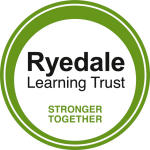We study the AQA specification at Ryedale School. Below is an overview of what is being taught to our GCSE students this year.
Current year 9 yearly overview (2018/2019)
Current year 10 yearly overview (2018/19)
Current Year 11 yearly overview (2018/2019)
Outline of the new AQA GCSE specification
An exciting, contemporary new course in which students develop an understanding of key processes and features in UK and around the world. The course aims to highlight important challenges and opportunities the human race is facing including; natural hazards, climate change, poverty, global shifts in economic power, the importance of new technologies and the sustainable use of the planet’s resources. Students will be encouraged to make links between issues and appreciate different values and attitudes in order to recognise the complex inter-relationships found within and between physical and human geography.
Unit 1 Living With the Physical Environment: – The challenge of natural hazards (volcanoes, earthquakes, tropical storms, extreme weather in the UK and climate change) – Physical landscapes in the UK (relating to rivers & coasts) – The living world (the characteristics and sustainable management of cold environments and tropical rainforests)
Unit 2 Challenges in the Human Environment: – Urban issues and challenges – The changing economic world (the development gap, factors driving rapid economic development in lower income countries and understanding the UK economy ) – The challenge of resource management (globally & in the UK).
Unit 3 Geographical application: – Issue evaluation – a decision making enquiry based on a contemporary geographical issue – Fieldwork – 2 fieldwork enquiries in which students collect, analyse, present, interpret and evaluate primary data in a physical (rivers) & human (town/city) location.
Assessment is by examination at the end of Year 11. Unit 1 1 hour 30 mins (35%) Unit 2 1 hour 30 mins (35%) Unit 3 1 hour 15 mins (30%). Students will no longer receive a grade (A*-G) but will be awarded a number 1-9 (1 being the lowest and 9 the highest).
More information can be found on the AQA website.
There are a range of useful revision resources for students to use. The most suited to Ryedale School students is our revision guide, which will be made available for sale as well as available on SharePoint
Other useful websites:
 |
Year Group:
9 |
Subject:
GEOGRAPHY |
Term:
AUTUMN |
||||||||||||
| Overview:
In Year 9 geography students will be starting to study GCSE topics to ensure there is enough curriculum time to effectively embed key skills and content. |
|||||||||||||||
Resource Management in the UK
Climate Change
The Living World
|
|||||||||||||||
Assessment:
|
|||||||||||||||
Feedback:
|
|||||||||||||||
| Homework: (3 per fortnight)
Homework will involve one of the following tasks:
|
|||||||||||||||
| Useful information/further support/revision:
http://www.coolgeography.co.uk/ https://www.bbc.co.uk/education/examspecs/zy3ptyc Textbook: GCSE Geography AQA, Simon Ross (Oxford). Case studies may differ from those we will study in class. |
|||||||||||||||
 |
Year Group:
9 |
Subject:
GEOGRAPHY |
Term:
SPRING |
||||||||
| Overview:
In Year 9 geography students will be starting to study GCSE topics to ensure there is enough curriculum time to effectively embed key skills and content. |
|||||||||||
| The Living World (started last term)
Urban Issues and Challenges: Mumbai (NEE)
The Living World Assessment: Revision lessons + feedback UK Extreme Weather
|
|||||||||||
Assessment:
|
|||||||||||
Feedback:
|
|||||||||||
| Homework: (1 per fortnight)
Homework will involve one of the following tasks:
|
|||||||||||
| Useful information/further support/revision:
http://www.coolgeography.co.uk/ https://www.bbc.co.uk/education/examspecs/zy3ptyc Textbook: GCSE Geography AQA, Simon Ross (Oxford). Case studies may differ from those we will study in class. |
|||||||||||
 |
Year Group:
9 |
Subject:
GEOGRAPHY |
Term:
SUMMER |
||||
| Overview:
In Year 9 geography students will be starting to study GCSE topics to ensure there is enough curriculum time to effectively embed key skills and content. |
|||||||
Water
End of year exam: Testing all of the completed topics:
|
|||||||
Assessment:
|
|||||||
Feedback:
|
|||||||
| Homework: (1 per fortnight)
Homework will involve one of the following tasks:
|
|||||||
| Useful information/further support/revision:
http://www.coolgeography.co.uk/ https://www.bbc.co.uk/education/examspecs/zy3ptyc Textbook: GCSE Geography AQA, Simon Ross (Oxford). Case studies may differ from those we will study in class. |
|||||||
 |
Year Group:
10 |
Subject:
GEOGRAPHY |
Term:
AUTUMN |
||||||||
| Overview:
The topics below will be studied during the Autumn Term. |
|||||||||||
| The Living World: (Finishing topic started last year: See Yr 9 Summer Overview)
The Challenge of Natural Hazards
The Challenge of Atmospheric Hazards
|
|||||||||||
Assessment:
|
|||||||||||
Feedback:
|
|||||||||||
| Homework: (3 per fortnight)
Homework will involve one of the following tasks:
|
|||||||||||
| Useful information/further support/revision:
http://www.coolgeography.co.uk/ https://www.bbc.co.uk/education/examspecs/zy3ptyc Textbook: GCSE Geography AQA, Simon Ross (Oxford). Case studies may differ from those we will study in class.
|
|||||||||||
 |
Year Group:
10 |
Subject:
GEOGRAPHY |
Term:
SPRING |
||||||||
| Overview:
The topics below will be studied during the Spring Term. |
|||||||||||
|
The Challenge of Natural Hazards: Finish topic and Atmospheric Hazards Assessment
Urban Issues and Challenges: Mumbai (NEE)
UK coastal landscape
|
|||||||||||
Assessment:
|
|||||||||||
Feedback:
|
|||||||||||
| Homework: (3 per fortnight)
Homework will involve one of the following tasks:
|
|||||||||||
| Useful information/further support/revision:
http://www.coolgeography.co.uk/ https://www.bbc.co.uk/education/examspecs/zy3ptyc Textbook: GCSE Geography AQA, Simon Ross (Oxford). Case studies may differ from those we will study in class.
|
|||||||||||
 |
Year Group:
10 |
Subject:
GEOGRAPHY |
Term:
SUMMER |
||||
| Overview:
The topics below will be studied during the Summer Term. |
|||||||
|
Physical Fieldwork: Coastal Study in Hornsea
Finish: UK coastal landscape topic
Year 10 Mock Exam and Feedback
|
|||||||
Assessment:
|
|||||||
Feedback:
|
|||||||
| Homework: (3 per fortnight)
Homework will involve one of the following tasks:
|
|||||||
| Useful information/further support/revision:
http://www.coolgeography.co.uk/ https://www.bbc.co.uk/education/examspecs/zy3ptyc Textbook: GCSE Geography AQA, Simon Ross (Oxford). Case studies may differ from those we will study in class.
|
|||||||
 |
Year Group:
11 |
Subject:
GEOGRAPHY |
Term:
AUTUMN |
||||||||||||
| Overview:
The topics below will be studied during the Autumn Term. The Human Geography Field Study will involve a 1 day field trip to Whitby. Details will follow closer to the time. |
|||||||||||||||
Economic Development in the UK
Human Geography Field Study
River landscapes in the UK
|
|||||||||||||||
Assessment:
|
|||||||||||||||
Feedback:
|
|||||||||||||||
| Homework: (3 per fortnight)
Homework will involve one of the following tasks:
|
|||||||||||||||
| Useful information/further support/revision:
http://www.coolgeography.co.uk/ https://www.bbc.co.uk/education/examspecs/zy3ptyc Textbook: GCSE Geography AQA, Simon Ross (Oxford). Case studies may differ from those we will study in class. |
|||||||||||||||
 |
Year Group:
11 |
Subject:
GEOGRAPHY |
Term:
SPRING |
||||||||
| Overview:
The topics below will be studied during the Autumn Term. The Human Geography Field Study will involve a 1 day field trip to Whitby. Details will follow closer to the time. |
|||||||||||
| River landscapes in the UK: Assessment
Urban Issues and Challenges in the UK: London
Resource Management in the UK
|
|||||||||||
Assessment:
|
|||||||||||
Feedback:
|
|||||||||||
| Homework: (3 per fortnight)
Homework will involve one of the following tasks:
|
|||||||||||
| Useful information/further support/revision:
http://www.coolgeography.co.uk/ https://www.bbc.co.uk/education/examspecs/zy3ptyc Textbook: GCSE Geography AQA, Simon Ross (Oxford). Case studies may differ from those we will study in class. |
|||||||||||





 Ryedale School is a partner in and co-ordinator for the Yorkshire Teaching School Alliance.
Ryedale School is a partner in and co-ordinator for the Yorkshire Teaching School Alliance.